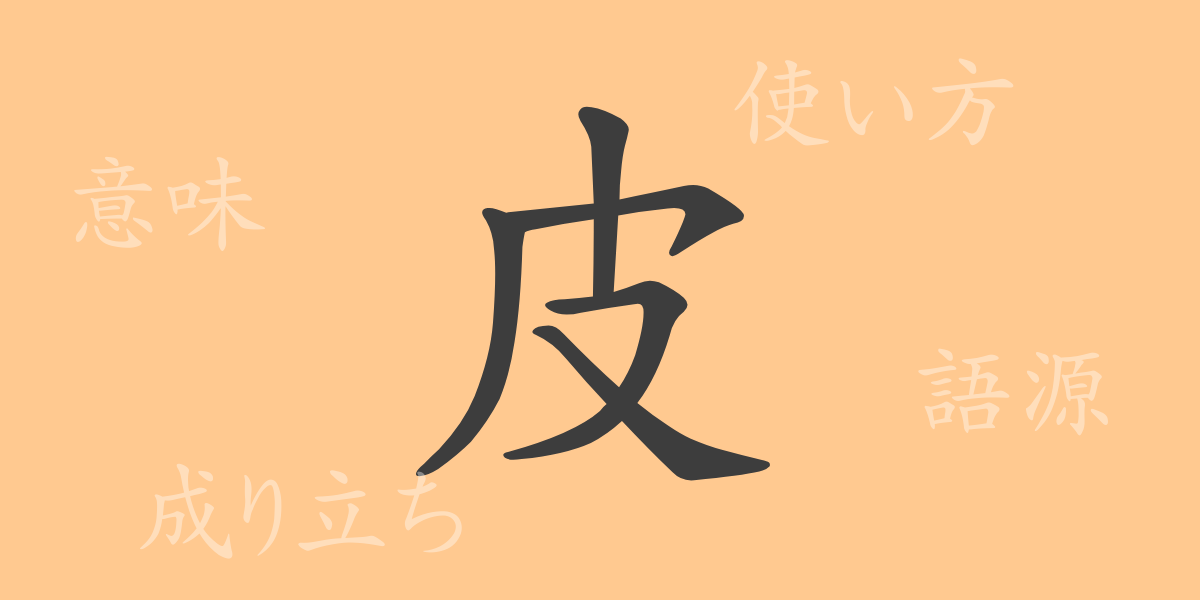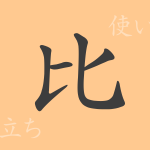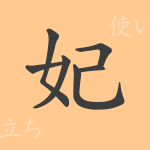“`html
The kanji character “皮 (kawa)” frequently appears in our daily lives. Its significance is deeply rooted in our existence. But what history and culture lie behind this single character? In this article, we focus on the commonly used kanji “皮 (kawa)” in Japanese, delving into its origins, meanings, usage, and idiomatic expressions. Let’s explore the world of “皮 (kawa)” while appreciating the richness of the Japanese language.
Origins of 皮 (kawa)
The kanji “皮 (kawa)” is said to be a pictograph representing the image of an animal’s skin being peeled and dried. Historical records from ancient China suggest that during the times when hunting was prevalent, animal skins played a crucial role as clothing and daily necessities. From this background, the character “皮 (kawa)” was created to mean “skin,” and it has been used in various cultures and languages ever since.
Meaning and Usage of 皮 (kawa)
The character “皮 (kawa)” primarily refers to the skin of animals or the thin layer covering the surface of trees. It can also figuratively mean the surface or appearance of something. In terms of usage, it appears in phrases like “皮を剥く (kawa wo muku)” meaning “to peel,” “皮膚 (hifu)” meaning “skin,” and “果物の皮 (kudamono no kawa)” meaning “fruit peel.” Additionally, it is used metaphorically in expressions like “皮肉 (hiniku)” meaning “sarcasm.”
Reading, Stroke Count, and Radical of 皮 (kawa)
The basic information about the kanji “皮 (kawa)” is as follows:
- Reading: On’yomi (Chinese reading) is “ヒ (hi),” Kun’yomi (Japanese reading) is “かわ (kawa)”
- Stroke count: 5 strokes
- Radical: 皮部 (kegawa hen), which means “skin radical”
Idioms, Expressions, and Proverbs Using 皮 (kawa)
Here are some idioms, expressions, and proverbs that include “皮 (kawa)”:
- 皮を剥ぐ (kawa wo hagu) – To remove the surface of something. Also, a metaphor for deceiving someone.
- 皮肉 (hiniku) – To mock someone with harsh words.
- 一皮剥ける (hitokawa mukeru) – To undergo a significant change in appearance or character.
- 蛇の皮を脱ぐ (hebi no kawa wo nugu) – To correct bad habits or character.
- 瓢箪から駒が出る (hyoutan kara koma ga deru) – An unexpected stroke of good luck.
These expressions demonstrate the rich expressiveness of the Japanese language, reflecting the diverse meanings carried by the single character “皮 (kawa).”
Conclusion on 皮 (kawa)
The kanji “皮 (kawa)” possesses a multitude of meanings and usages that are far beyond what its simple form suggests. Its applications in Japanese range from direct meanings to metaphorical expressions, making it an indispensable part of our language. We hope this article has helped you appreciate the depth of the kanji “皮 (kawa).”
“`

























